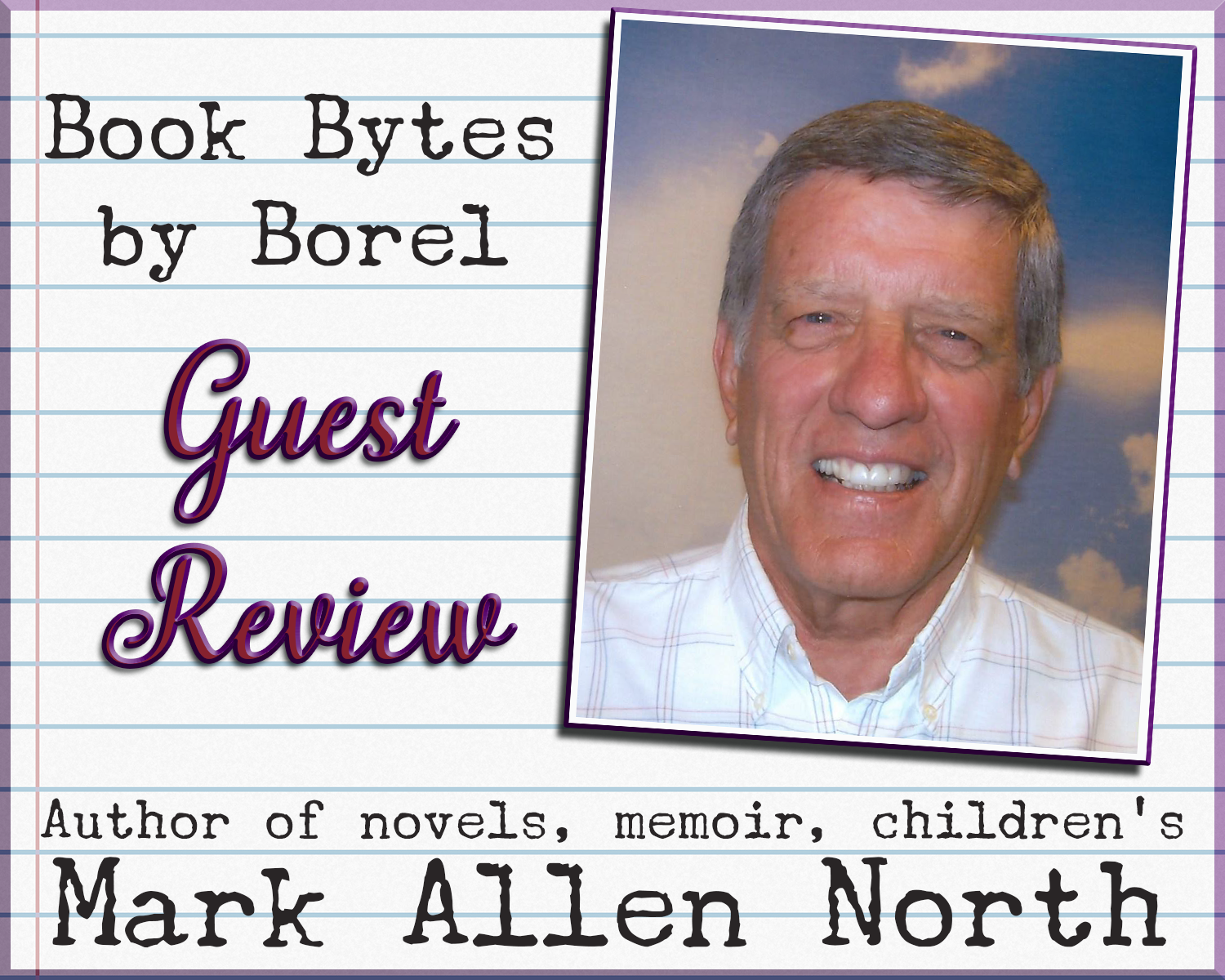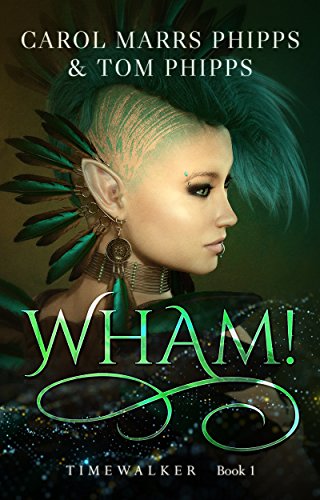Great interview. Very richly detailed. So forthright, honest. I know the feeling Verwayne Greenhoe has about writing coming naturally, flowing out. I also identify with him as to “unpleasant” childhood experiences influencing writing talent…AND the fact Verwayne is a Nurse echoes my own triple-medical careers and definitely contributes to the richness in a writer’s mind. An RN myself, so many diverse diseases, patients, staff interactions in hospitals cannot be duplicated in other jobs (say, business, finance, teaching, etc.). The richness of such an in-depth work background, the far-reaching diversity of the patients and co-professionals a writer’s mind comes into contact with, in medically-related careers, is a goldmine of experience for the picking of anyone with a gift to write. My three are RN, medical advertising writer, psychoanalyst. Verwayne Greenhoe’s are his veterinary-rich childhood, his (obviously) mentally ill mother<-psychiatry, his experience as an EMT and, again, his Nursing career in the tightly, high-tension Emergency Department as an ER Nurse. There are several famous writers with a medical background. The most famous is Anton Chekhov, MD, who said, “Medicine is my wife, Writing is my Mistress.”
DANCING WITH WORDS: A Review of STEPHEN GEEZ’s Comes this Time to Float by Helen Borel
Since I purchased Comes this Time to Float and I’ve been floating on the writer’s gifted writing ever since. So many diverse, unusual, inventive tales that’ll keep you glued to this page-turner. Varied characters speak in diverse voices emitting love, aggravation, paranoia, magic, mortality, bravery, naivety, wonder, otherness, and much more. Read for yourself this unputdownable collection by Stephen Geez, novelist, short story guru, teacher, musician, and deep sea diver. Escape into the fictive genius of Geez.
…………………………………………………………
Come read with me as we float through life-moments of nostalgia. Experience Stephen Geez inventing internal adventure for you. Enter other worlds of living, experienced by captivating characters, some familiar, some strange.
The first story, “SIDEKICK,” is fast-paced and charming, a delightful potpourri of different personalities in the process of self-observing, a little raconte wherein the roles of “Superhero” and “Sidekick” fascinatingly switch places throughout. Fact is, especially when you, the reader, realize Geez has deliberately left the sidekick unnamed, you feel sure he is presenting a kind of positively split personality; “the sidekick,” who weakened exhibits strengths, “the superhero,” who strengthened by the sidekick, exhibits weaknesses. (And, by the way, the superhero remains nameless, too.) Thus, if you strip away the clever dichotomy Geez created here, this could be the complex, outward, real-life happenings, challenges and successes motivated by the internal consciousness of the main character(s). Both nameless but, at once, memorable.
Next, presented in a literary voice, “VENEER” is a disarming bauble evoked from the in-brain thoughts of an elder Southern woman. A stubborn one, who the author thinks out loud for. She’ll be damned if she’ll let anyone take advantage of her vulnerability. Even if it means saving her life from an oncoming flood. “Anybody lays a hand on Iris Heidway, he’ll be lucky to get it back,” she mentally warns. Then, listen to this visually alive description of what Iris, peeking out her window, saw: “A county van packed with busybodies turned around, then rocked and swayed its way back up the hill, splashing through a frantic gravel-washer streaming down the rutted road.” Geez’s descriptions of the waters’ onslaught is crafted to give you the you-are-there feeling of the threat of the attacking flood. You need to get your feet wet, so to speak, immersing yourself in the story, to get the charming essence of the old lady’s character and inner ‘onery thoughts as she wields her firearm. A humorous kind of paranoia. I’ll leave the picturesque describings to you, the reader, to deliciously discover as the flood impinges and her suspicions of Caroline’s boy – come to save her despite herself – crest.
More disarmingly delightful stories float into focus, such as another bauble, “LUNATIC,” a sad but unusually vibrant tale. It’s overall feeling is of the elusiveness of the characters inhabiting these tales. Each, in some way, has special powers, ethereal viewpoints, otherness. Following which is “ATTENTION PAY,” a charmingly-woven story told by “Foster boy,” a mentally-slow person. This one is empathy-soaked about the vulnerability and hidden depths of mentally-challenged people trending toward a love relationship. Then, find yourself in “HALFWAY HOUSE,” a surprising story of love and loss and love again. Of days in a florist’s with a former prison inmate…attracted woman, skittish ex-felon.
Most unusual, of Geez’s inventions, is “ABOUT FACE” in which Jeremy didn’t know who that was in his mirror. Himself recognized. And unrecognizable by those who should’ve known him. Impersonating other, more courageous parts of himself. Avenging, with a temporary new face, wrongs actual, wrongs never imagined. A Self, from now on, questioned. In this story, you don’t simply “float,” you get vacuumed into Jeremy’s otherness. Then, before you can recover your Geez-manipulated Self, along comes “HOLLER SONG“. The way the writer has scupted 70-year-old Retta’s speech will charm you into curiosity about what’s further in store. “A lifetime of second thoughts” is but one of the disarming, charming phrases Geez sprinkles liberally into this regional-focused story. It’s the language you’ll enjoy. It’s English, but not. It’s Geez’s characters’ ways of speaking. A delicious euphonious romp recording pointed feelings of Lurlene, TJ, Tetta, and Cammie.
Then there’s “VAPOR GIRL,” about a daring duo, Tamoo, a young woman/girl, and Carmon, a young man/boy on an exciting, word-rich adventure in an exotic place. You must go through this experience yourself, without my review diluting its delicious effect. And next, you’ll love this richly-worded story, “BAND CALL-OUT“. As in all Geez stories (including in this diversely gifted writer’s long fiction which I’ve enjoyed reviewing), he has a way with words that turns them into real-world sounds and you-are-there experiences. An Accomplished musician, Geez’s characters Fuse, Mo, Ray-Ray, and Metal enfold you in the atmosphere of real-life gigging music men. Turns out the location where all this musicianship takes place is a surprise, which I won’t disclose so you can enjoy discovering it de novo. And, always, it’s the language that’s unique to this story, as is true of the other original tales in this collection. Colorful, disarming, always immersing you in lush characters’ experiences.
After that comes “READY FOR COMPANY,” about “Widowed sisters in their seventies….”: A story dedicated to the details of living amid household things in chaos, the essentials of cleaning, the repetitiveness of dailyness. And more. You need to experience Margie, Babs, their nephews, and the exigencies of family visits…and only as Stephen Geez can tell it.
Then, if you experience a bit of deja vu, that’s because “KRAB KAPER” could give you flashbacks to the main character in Stephen Geez’s novel, FANTASY PATCH (about pharmaceutical manufacturing and the medical advertising industry). Dante Roenik, Ad Agency Creative Director, is featured therein. In this short story, there’s Taj about the Hermit crab. And there’s Geez saying, “Lettuce just leaves a bad taste,” a pun-fun play on “lettuce leaves”. As to the hermit crabs featured, note: “Living creatures are not toy prizes, they should be entrusted only to those who truly want them and will properly care for them.” Returning to the Fantasy Patch hero: This ethical awareness didn’t stop Roenik from staging a crowd-pleasing, crab-tweezing, publicity stunt: “Kids for Krabs”.
After which, there are more little stories, so moving they keep you reading, like “BLIND IS LOVE“. This is a startler that lovingly explicates tragedy and a day that returns interminably. Tugs at the heart. Next comes, “KITTY MAKES THREE,” in which a writer struggles with inventing so-called “listicles”. Like “Ten Ways to Do This,” etc. Carlysle J. Katt belongs to Katie and, because of the first person narrator’s invasion, the cat was out of the house. So our hero, being a listmaker, now conjures, internally, #1 on the list of “How to Flush Out a Scaredly Cat.” At first, this feels like a story about a freelance writer inventing How-to lists, then about the tearful, fearful search for a missing feline. Though, finally, it’s about love.
Moving even deeper into communicating the outer expressions of deep inner-experience is “TAILWIND,” a surprise “flight,” a soaring trip, a metaphor for the emetic waves of certain severe therapies. And the ways certain humans brave the worst while sharing the best. That’s Willie and Jack just plain flying like they always did, together in their plane. Just plain (sic) wonderful.
Emerging from that touch of grief, here’s another bauble, “FAMILY TREED,” a feast of family-folk language. A day in the life of seemingly mismatched genotypes. The tree a metaphor for human branches connected. Then there’s “BUS BOY,” yet another soul-charming tale that’s richly descriptive. Language Geez uses ensnaring you, the reader, in an aura of “you are there” yet again. I love Andre’s mother’s words, “…proud of him…bring in some money, help out, maybe get some insurance to share her car. Teenage boys cost a lot.” That’s “Moms” to Andre. This is a journey into the cerebrations of a pissed-off busboy, judgmental of elder employees, jealous of waitresses’ tips, on the tip-end of adolescent self-inflation. A day in the life of a newbie busboy watching, complaining to himself about everyone else, ultimately learning it’s okay to grow up, feel responsible, to help Moms.
Here it is, “COMES THIS TIME TO FLOAT,” the title story which starts, staccato. Pointedly spurting out statements. A master of description, Geez has light “stabbing” the gloom, leaves “reaching” as a coupe “scrapes…penetrating dark forest deep….” He anthropomorphizes the speechless varieties of nature. And the visions of an elder woman in the arising “worms” of her garden of memories. He speaks in “pine pollen,” “evergreens,” “pine cones,” and “a forest floor carpet.” And in such bon mots as these: “…as they body-surfed the rapids, there in the river where she learned how to forget fear….floating through these moments of trusting the other to watch for rocks.”
Despite life’s scary challenges, the rapids float on, a metaphor for the turbulence of living. And also for the certainty that, no matter how far flowing the water, nor how rapidly far the rapids travel, water always mingles with its beginnings, never losing touch with its essence. Another metaphor for the fact that humans are always in touch with all their prior life experiences, all their feelings. In the end…. Well, you need to dive, courageously into the natural flow of these stores Geez has floated for you using the vast variety of his fiction-writing gifts.
Finally, these last few Geez morsels are to be savored: “THE AGE-EATER” is about turning elders into youthful selves. About a magical, selfless being who, nostalgically eats bygone decades, gifting youthfulness back to decrepit, physically-deteriorating older folks. A second vivification, minus the problems long-ago-faced, re-experiencing the youthful pleasures long mourned. A magical story you must discover for yourself; this writer’s exceptional invention. Geez, it’s Geez’s genius.
And, the closing story in this rare collection, “TIME AND SPACE,” carves a key point that binds all these stories together: “And it’ll break your heart that a machine can outlast a man.”
About this unusual, experiential collection, all I can say is, “Geez, it’s Geez at his best.”
Wham! Review by Mark Allen North


Wham! Is the first book I’ve read by Carol Marrs Phipps and Tom Phipps. At first, the story moved so fast I felt a bit disjointed with so many characters requiring attention. However, reflecting on how I might relate to the reader if my parents and sister were bludgeoned by “Children and Family Assistance,” as was the case with Tess, I too would find it hard to grasp the fantasy. Describing the experiences suffered under the corruption, power, greed, and sexual proclivity of the police forces leaves the reader to forge on to see how much worse the dystopian fantasy will develop. The additions of Drake and Bart (the Skinwalker) and, finally, Maxi the troll provide further examples of the ruthlessness of their horrible quandary. Readers seeking stories with darkness and evil plots aligned with the fantasy of love will be gripped by the terrible experiences of both Tess and Nia. I love Tess’s brave and powerful reliance on her strong familial ties as she fights the evil in her unwelcome surroundings. The characters are well developed and relatable. The plot moves quickly, but becomes more clear the deeper we go. I think this novel would appeal to a wide variety of people, especially young adults and fantasy mavens. Anxious, I am, to read Book #2 of the Time Walker series. Good show, Carol and Tom. I look forward to your skill in crafting more tale-bearing passages into delightful stories.
TEQUILA ROSE VIRGINITY BLUES by Wendy Jane
Through a Haze Snarkly, Into the Possibility of Love: a Helen Borel,MFA,PhD review
OPEN this jam-packed, descriptively tight little story with enough precious asides to tickle the fancy of any reader constrained by only a short space of time to sink into some stimulating fiction. Wendy Jane’s TEQUILA ROSE VIRGINITY BLUES is just bite-sized enough to bring you a swift, fun respite from whatever’s challenging your day. A romp through a, sometimes intense, bauble of a tease-y tale.
ENTER the outset, to experience the author planting visions of “alcohol-marinated brain cells” in your reading mind, to explain her protagonist’s post-inebriated state. You’ll feel engulged as her imaginative language evokes images and feelings you may easily identify with frrm your own analogous adventures. Like, “My desiccated tongue flapped inside my mouth like a beached dolphin struggling for the tide line.” Like that line, Wendy Jane’s bio-descriptive, well-honed voice propels her vivid story forward. The writer luring you forth to keep reading, to keep craving more such gems.

FEEL her poetic technique. At times, this unusual writer rhythmatizes her words, visually making them appear like poetry, staccato-like, stating solo word after solo word, following each with a period. An original technique that works particularly well in the context of Wendy Jane’s Tequila Rose thought-narrative. Thus, this most original, inspired juxtaposition of words, lets you joltedly feel the action as her character stumbles, victim of her alcohol-soaked brain, to the door to greet a male visitor. “Focus. Not. Going. To. Be. Sick. In. Front. Of. Man. Hammering. On. My. Door.” And, this author is very gifted at conjuring visuals in a reader’s mind, like “…his denim-clad thighs”. And, “Laughter sparked in his aquamarine eyes”. And, “Two dimples creased his face”. It appears a mystery man has brought her “the hangover kit”. Some challenging back-and-forth ensues which you’ll enjoy when you encounter it.
TOUR A BRIEF HISTORY OF SELF-PITY: At age thirty, in receipt of a publisher’s rejection notice, “…no thanks…blah blah blah,” our heroine broods. Speaking of “broods,” enter her mother. Now our post-alcoholic-night old-maid storyteller complains about her mom, who’s desperate for grandchildren from her only child. So, soon, there’s maternal intrusion pummeling Tequila Rose’s door after the creased-face guy with the Levi-thighs leaves, and after she’s gingerly stepping from her shower.
EXPERIENCE AN IN-BRAIN MOTHER CONFLICT: Whines the author’s self-castigating heroine, “In my lamentable thirty years, I’ve yet to win an argument with my mother.”
Most of the time, her mother, Evangeline, calls our brooding heroine, “Teq”. This time, though, she stretches out her child’s full name. “‘Tequila Rose,’ her mother demands determinedly, ‘I want grandchildren while I’m still young enough to hula-hoop.’” And, thus, Teq’s boundary-crossing mom swiftly gifts her a speed-dating invite.
Apparently, Evangeline has had a habit of consoling her daughter with questionable imbibings, too. So reports Teq, “Once I’d succumbed to her offering of a sure-fire elixir to cure the flu. The next three days had sped by in a psychedelic blur of kaleidoscopic colours and imaginary friends.” Such are the author’s vivid descriptions that spice up this deliciously-served, emotionally-engaging short story.

ATTEND TEQ’s SPEED-DATING ADVENTURE: Suddenly, Teq Rose is at the venue, speed-dating for real, a man plopped in a chair facing her which the author describes so describingly. “His torso lurched across the table until his elbows rested on either side of my wine glass and his face was only scant inches from mine. My personal space-invader alarm jangled as I counted the nose-hairs curling out of his nostrils….Like a fire-breathing dragon, he expelled his first question directly into my face.” This kind of writing is pictorially vivid and olfactorily rich in real-life visualizations and smell-sensings. Writing replete…a tale drenched with the aromas of vomitus, alcohol, halitosis and other odoriferous minglings, causing words, to the reader, to turn into sensibilities humanly familiar, picturesque and potent. The story’s images are made vivid by this descriptives-gifted writer. And there’s a surprise at the close of this scene.
Finally, so as not to give away THE FINESSED ENDING, I won’t reveal it. Let Wendy Jane (aka W.J. Scott when the author is penning works in other genres) deliver those gut-smashing scenes directly into the heart of your imagination as she did mine. Grab it. Because you, along with this author’s many readers, are in for a plot-twisting surprise.
And you can visit the author here: http://www.wendyjscott.com
Ellie Collins’ MYLEE IN THE MIRROR
Self-Reflections with a Mythical Mentor
a Helen Borel, MFA,PhD review
A teenage triumph of a writer is firmly planted in our literary midst. Normally, “writing talent” and “teenage girl” would never gel together. However, in the case of writer Ellie Collins, a pretty, varied-interests girl, we have a gifted anomaly. Such maturity in the insights of this young writer as she observes the sad change in her grandmother’s living arrangements as her main character, Mylee, gently informs her Grammy Jean: “‘Grammy…there’s a bus that runs in the afternoon from the stop at the other end of our street to the street next to the one the Kirkland Heights Retirement Home is on.'”

“Grammy didn’t need any more stress today, of all days.” And, once at the old age home, and mother Sharron had finished with the director’s intake documents, deft writer Ellie Collins observes Mylee like so: “She hugged Grammy Jean goodbye, willing all her love and support to soak into Grammy and keep her strong until [she] could get back, which she promised to do in a few days.” Such a grown-up expression of empathy from this teen writer. Another: Schoolmate Ty, objecting to an invite to Mylee from “badass” Sam, the football player, which she accepts, squirms in italicized thoughts, “‘Noooooooo!!! What is she doing? She can’t encourage this moron; he’s all wrong for her! Ty bit the inside of his cheek to keep from voicing his objections.'”
What follows are hip high-school kids – a coterie of tight friends Lilith, Serena, Ty and Mylee – bantering, teasing, testing pre-adulthood in school halls, in lunchrooms, and outdoors. And note this young writer’s accomplished descriptive gift: After presenting her reader with a troubling scene of an icy dinner atmosphere between her parents, an insufferable silence, Collins has her Mylee character (who wanted to watch TV in the living room) experience “…the clouds of tension hovering over Mom and Dad had moved with them from the dining room to the living room….” Which cloistered Mylee in her room.

Before their trip to the old age home, when sorting Grammy Jean’s possessions in the attic, Mylee happens upon a dazzling collection of hand mirrors. So entrancing. Collins describes each lovingly – with etchings, carvings, embroideries. Mylee favors the pewter one with the winter scene. This became the find of all time. The golden one. It’s intricacy stunned her. Bejeweled. Dazzling.
Now, hold your breath. What she then sees in this spectacular mirror is not her now self, not her earthly room surrounds. What she views is a garden with a flutterflying butterfly. Mystery is buildinng as Ellie Collins snares you in her giftedly-crafted, off-the-beaten-track tale. She has Mylee escaping from her parents’ dysfunctional yelling into the beginnings of a mythic world.
Meanwhile, interspersed, in the real world, Mylee is experiencing all the ups-and-downs and angst and impulsivities of millions of pretty and popular teenage girls. And exceptionally mature for a teenage kid oppressed by the dread parental moods hanging over her, afflicting her natural exuberant normalcy.
Soon, that golden mirror inflicts – not reflects – a blue-eyed blond woman – claiming that Hermes, the Messenger God will pay for hiding her mirror. She’s Aphrodite, goddess of beauty and love. Thus, by merely gazing into it, Mylee can conjure her own private Skype friend, albeit from a mythical world. And from an autocratic ancient. A testy mentor. Still, together they conspire to swap Hermes’ caduceus for a fake one, as payback. Whereupon, Mylee enlists Aphrodite as a confidante about her teenage throes and her parents’ woes.
It’s amazing how this young girl manages to escape from an ordinary, commonly-experienced pre-adult existence – divorce-prone parents, a loving grandma already neatly tucked away in old age, plus friends, admirers and a home-coming date – into ancient Greek mythologic conspiracies among beautiful gods and goddesses.
Suddenly, in a later chapter, the goddess is taking advice from the human teen goddess, all blond and green-eyed, too. And, instead of behaving like an ancient seeress, Aphrodite is transformed by Mylee’s wisdom, into a co-conspirator-confidante. How Ellie Collins captured this magical transformation is embedded in her bold writing gift, making this transition of Aphrodite and Mylee, kind of reversing roles, feel flowingly natural.
Finally, there’s the gift the goddess bestows on Mylee, both spiritual and concrete. And, thus, Aphrodite’s beleaguered husband, the god Hephaestus, is lifted from cuckold-bound to loved partner by the wisdom of a young girl. Thereby paralleling Ellie Collins’ main character’s maturity with her own astoundingly evolved writing. And at such a natal stage.
STEPEHN GEEZ’s FANTASY PATCH: Intrigue-Replete, Heart-Racing Read Review by Helen Borel,MFA,PhD
A Five Star Review ⭐⭐⭐⭐⭐

FANTASY PATCH is a page-turner from even before Chapter One. Because the author leaves the reader on a perilous cliff-hanger as the Prologue winds forward, propelling you, the reader, suspensefully into the guts of this unusually thrilling novel.
I don’t want to reveal the plot or too much of the subject here. I want to leave that excitement for you readers to discover yourselves, as I did with surprises abounding. Hintingly, though, it’s thick with Advertising Agency, Television Industry, and Pharmaceutical Manufacturing intrigue. And richly drawn characters inhabit Stephen Geez’s FANTASY PATCH world with unforgettable names of both individuals and corporations, ingredients that thicken the underlying poetic sensibility inherent in this unique piece of literature.

The main character, our hero, Dante’ Roenik, an advertising genius and television pro, is both observer and commentator as he relates the multifarious and multi-various events that occur almost nonstop in FANTASY PATCH. And his commentary often slips and dips into plays on words, humor, historical reference and fantastical reference, further enriching an intriguing story written by a uniquely talented voice.
So much suspense and exciting action, I read it on the edge of my seat. Big Pharma, Pharm Ad Agency Intrigue, Characters galore. A great gift book and a reading adventure for everyone. Readers who buy FANTASY PATCH should prepare for a non-putdownable experience. Helen Borel,MFA,PhD
Jazz Baby by Beem Weeks
A Five Star Review ⭐⭐⭐⭐⭐
While all of Mississippi bakes in the scorching summer of 1925, sudden orphanhood wraps its icy embrace around Emily Ann “Baby” Teegarten, a pretty young teen.
Taken in by an aunt bent on ridding herself of this unexpected burden, Baby Teegarten plots her escape using the only means at her disposal: a voice that brings church ladies to righteous tears, and makes both angels and devils take notice. “I’m going to New York City to sing jazz,” she brags to anybody who’ll listen. But the Big Apple—well, it’s an awful long way from that dry patch of earth she’d always called home.
So when the smoky stages of New Orleans speakeasies give a whistle, offering all sorts of shortcuts, Emily Ann soon learns it’s the whorehouses and opium dens that can sidetrack a girl and dim a spotlight…and knowing the wrong people can snuff it out.
Jazz Baby just wants to sing—not fight to stay alive.
JAZZ BABY is not only a good read. It’s a lived experience. Beem Weeks’s words, paragraphs, chapters pulsate with alive characters, completely felt moments, every page, every sentence. Not a wasted syllable. It’s like a tome(sic) poem, long and literary. The year is 1925. Poetically moving are Weeks’s wonderfully crafted literary gems like this one: “A warm breeze slipped through open windows and set my hair to dancing.” More firmly establishing the mood, the storyteller in the persona of Emily Ann “Baby” Teegarten lures you into intimate experiencing.
Vivid. Immersive. As though you’re a fly on the wall of the ramshackle habitat and rustic habits of the Teegarten family. If Emily Ann isn’t sassing Papa outright, her internal monologue is colorfully rich with opinions about her flesh and blood and about outsiders like Eunice Spatch and her husband.
In this delightfully crafted novel, Weeks deftly spirits you to a world a-weary-of-ordinary to an existence a reader gladly escapes into, immersed in one of those great literary Southern American novels. Add Weeks to that pantheon of greats.
 Telling his story from the heroine’s perspective, Weeks situates Emily Ann, mostly in her internal monologue, in a self-created goddess universe. A genius wordsmith, Weeks is a virtuoso at hard-to-verbalize (even for other accomplished writers) descriptions of scenes, feelings, thoughts throughout this novel. Here’s a shining example: “Across the pond, a million butterflies rose and fell in unison, courting some grand symphony only they could hear.”
Telling his story from the heroine’s perspective, Weeks situates Emily Ann, mostly in her internal monologue, in a self-created goddess universe. A genius wordsmith, Weeks is a virtuoso at hard-to-verbalize (even for other accomplished writers) descriptions of scenes, feelings, thoughts throughout this novel. Here’s a shining example: “Across the pond, a million butterflies rose and fell in unison, courting some grand symphony only they could hear.”
This pre-teen female is both grandly mature for her age and “baby” innocent simultaneously. All the dialogue, plus the internal monologue of the heroine speaking to the reader, is clever, incisive, poetic. Like this aside from Emily Ann, after her and Billy’s mutually nude encounter, interrupted by another beau at the waterside: “An awkward still moment passed while Billy finished putting his clothes right. ‘See you around, Teegarten’, he said, taking his grin with him.”
Even an anthropomorphic “shiny black Ford glowered at me from our driveway,” Emily Ann tells herself. This novel is very tightly written, keeping you enthralled sentence to sentence, as each rapidly evolving scene emerges and surprises yet again. Soon there’s Tanyon Thibbedeaux, Papa’s best friend, pivotal in getting Jazz Baby Teegarten to sing in a speakeasy.
Riveting. Once you start it, I’m warnin’ ya, you won’t want to put it down ‘til all read—‘cept to chow down some food between delicious chapters. Because you’ll melt swiftly intoBaby’s nostalgic American South of 1920s Biloxi and New Orleans. Lord a-mercy! What a great piece of literature! Not a word wasted. Tight storytelling even Ernest Hemingway would envy. Immediacy. You’re THERE. No, you’re IN her every experience, carried along by the easy flow and forward propulsion of superb writing.
 Emily Ann is both childlike and mature beyond her years. You get vortexed into the JAZZ BABYatmosphere by Weeks’s cleverly crafted language his protagonist revels in. Extremely aggressive for a very young girl, even in her internal self-talk, she fluidly transitions from vague naivety to brashness in various, rapidly occurring, suggestive, then sexually overt encounters. Reading JAZZ BABY, you’ll understand how she soothes herself with these masterfully expressed internal monologues, wondering if her gorgeous singing will ever carry her to glorious heights.
Emily Ann is both childlike and mature beyond her years. You get vortexed into the JAZZ BABYatmosphere by Weeks’s cleverly crafted language his protagonist revels in. Extremely aggressive for a very young girl, even in her internal self-talk, she fluidly transitions from vague naivety to brashness in various, rapidly occurring, suggestive, then sexually overt encounters. Reading JAZZ BABY, you’ll understand how she soothes herself with these masterfully expressed internal monologues, wondering if her gorgeous singing will ever carry her to glorious heights.
The core of this novel is like a Freudian feast in the mind of a multi-faceted being. Determined. Naive. Risk-prone. Sexy. The book’s got everything: Murder. Mayhem. Sex. Innuendo. Insinnuendo. It’s got bootleggers. Bootlickers. Miscreants. And, to paraphrase an old saw, “It ain’t over ’til the young girl sings.”






